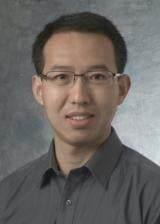Radiation Effects in MEMS/NEMS: Fundamentals and Recent Progress
Micro/nanoelectromechanical systems (MEMS/NEMS) have been significant enabling technologies in the ‘More-than-Moore’ paradigm. They have not only directly led to the realization of numerous sensors, actuators, and communication devices in semiconductor industry, but also tremendously facilitated advances in transducers and precision instruments in exploratory research and cutting-edge metrology. When combined with advanced materials, such as SiC, GaN, other related materials, and their heterostructures, MEMS/NEMS transducers are also highly attractive for applications at high temperature, and in harsh and even extreme environments, including exposure to various radiation conditions. In this presentation, I will introduce the fundamentals of radiation effects on solid-state micro/nanomechanical structures, and the important experimental techniques for probing and quantifying such effects. I will then focus on discussing our multidisciplinary team’s collaborative research thrusts (with the ISDE at Vanderbilt University and other collaborators) and recent progress on studying radiation effects of gamma-ray, X-ray, protons, and energetic heavy ions upon various MEMS/NEMS transducers, including switches and multimode resonators with different geometries and dimensions, and including devices made of Si, SiC, GaN, Ga2O3, and 2D semiconductors. Finally, based on the findings, we shall discuss challenges, opportunities, and future perspectives of advancing MEMS/NEMS for emerging applications in space and other radiation environments.
Date and Time
Location
Hosts
Registration
-
 Add Event to Calendar
Add Event to Calendar
Loading virtual attendance info...
- Contact Event Hosts
- Co-sponsored by CH02167- Northern Virginia/Washington Nanotechnology Council, NANO42
Speakers
 Prof. Philip Feng of ECE, University of Florida, Gainesville, FL
Prof. Philip Feng of ECE, University of Florida, Gainesville, FL
Radiation Effects in MEMS/NEMS: Fundamentals and Recent Progress
Micro/nanoelectromechanical systems (MEMS/NEMS) have been significant enabling technologies in the ‘More-than-Moore’ paradigm. They have not only directly led to the realization of numerous sensors, actuators, and communication devices in semiconductor industry, but also tremendously facilitated advances in transducers and precision instruments in exploratory research and cutting-edge metrology. When combined with advanced materials, such as SiC, GaN, other related materials, and their heterostructures, MEMS/NEMS transducers are also highly attractive for applications at high temperature, and in harsh and even extreme environments, including exposure to various radiation conditions. In this presentation, I will introduce the fundamentals of radiation effects on solid-state micro/nanomechanical structures, and the important experimental techniques for probing and quantifying such effects. I will then focus on discussing our multidisciplinary team’s collaborative research thrusts (with the ISDE at Vanderbilt University and other collaborators) and recent progress on studying radiation effects of gamma-ray, X-ray, protons, and energetic heavy ions upon various MEMS/NEMS transducers, including switches and multimode resonators with different geometries and dimensions, and including devices made of Si, SiC, GaN, Ga2O3, and 2D semiconductors. Finally, based on the findings, we shall discuss challenges, opportunities, and future perspectives of advancing MEMS/NEMS for emerging applications in space and other radiation environments.
Biography:
Philip Feng is a Professor and Associate Chair for Research in the Department of Electrical & Computer Engineering (ECE) at University of Florida. His research is primarily focused on emerging semiconductor devices and integrated micro/nanosystems (particularly MEMS/NEMS), especially those based on advanced semiconductors (such as SiC, AlN, Ga2O3), 2D materials and their heterostructures, quantum devices, and their heterogeneous integration with mainstream technologies. Feng received his Ph.D. in Electrical Engineering from California Institute of Technology (Caltech). He has supervised and graduated 13 Ph.D. students, 10 M.S. students with research theses or projects, 8 postdoctoral scholars, and over 20 undergraduate researchers (including 2 recipients of the prestigious National Science Foundation (NSF) Graduate Research Fellowship). Feng has authored over 100 journal articles and over 110 peer-reviewed papers (mostly in proceedings of IEEE premier and flagship conferences). Feng was an invited participant to the National Academy of Engineering (NAE) Frontiers of Engineering (FoE) Symposium program. His research and educational activities have been recognized by several awards include the NAE Grainger Foundation Frontiers of Engineering (FoE) Award, the NSF CAREER Award, the Presidential Early Career Award for Scientists and Engineers (PECASE), and several Best Paper Awards (with his students) at IEEE and other international conferences. He has served on the Technical Program Committee (TPC), International Steering Committee (ISC) or Executive Committee, or as a Group Chair or Track Chair, for IEEE IEDM, IEEE MEMS, Transducers, IEEE IFCS, and IEEE SENSORS conferences. He has also served as a conference chair for IEEE MEMS 2021, and as the technical program chair for the SiC Materials and Devices Workshop since 2017.
Email:
Address:ECE, University of Florida, , Gainesville, Florida, United States, 32611

